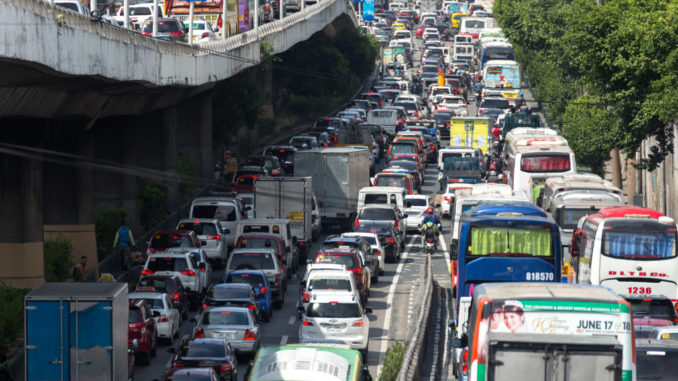
By definition, road traffic is simply the flow of vehicles moving along a road, whether public or private. But to people, the term ‘traffic’ more popularly denotes a complicated part of daily travel, even a crisis in some regions. The more accurate term to refer to delay in travel caused by slow movement on the roads is traffic congestion.
Weisbrod et al. defines this as a condition due to an uneven ratio of the number of vehicles to road capacity. Literature on the impact of traffic congestion often discusses the issue as a factor affecting productivity and operating expenses.
Being delayed by traffic congestion is virtually a daily experience for countless people: employees, clients, field drivers alike. The delay caused by traffic congestion bears encompassing effects on all kinds of businesses, particularly on productivity and supply chains. Needless to say, there is an impact on operating expenses and profit. Can effective traffic management help to ease traffic congestion and, in turn, help businesses and livelihood?
Traffic and Productivity
Research affirms that traffic congestion is the leading culprit behind tardiness among mobile workers such as delivery, freight, or fleet drivers, among others. A U.S. study found that 29% of employees are late to work once a month, at minimum, citing traffic and oversleeping as leading reasons. Also, statistics show that 4 in 10 employers have relieved employees of their jobs because of tardiness.
In a 2019 traffic congestion analysis in the U.S., it was found that traffic congestion amounts to almost $1,400 in lost income annually for the average American commuter. Boston ranked top among the cities, where the traffic congestion situations result in an annual loss of 149 hours per average commuter. For income drivers, this translated to about $2,205 in lost revenue. In the same year in Chicago, 145 commuter hours lost to traffic congestion computes to about $2,059 in lost revenue.
In Philadelphia, it was 142 hours costing $2,016 in revenue. The list goes on, but each city in the analysis pretty much tells the same story. Traffic congestion causes wasted hours on the road, leading to lost revenue and, sometimes, even lost employment.
Traffic and Supply Chains
Traffic congestion impacts the supply chains in various industries. Primarily, the problems stemming from traffic congestion caused significant shifts in business decisions among product manufacturers, distributors, and retailers involved in a typical supply chain. A separate line of research studies on supply chain behavior has used systems dynamics models to show how traffic congestion can change the optimal decisions of producers, distributors, and retailers along a supply chain.
Essentially, the negative impact of traffic congestion on supply chains is that the delay in and uncertainty of supply increases the demand for (thus, the costs of) the products. To mitigate cost risks, those involved in the supply chain have taken to shipping inventory in smaller lots. Cost risks may be controlled by this strategy, but do not really address the demand aspect which keeps product prices high.

Managing Road Accidents and Driver Behavior to Address Congestion
There are three main factors contributing to traffic congestion: saturation, construction works, and road accidents.
Traffic congestion is most commonly caused by high vehicle volume. There are more vehicles than the road capacities can accommodate. High vehicle volume can be due to a rapid increase in population that surpasses the rate of infrastructure improvement.
Highway construction, on the other hand, though may cause traffic choke points and congestion, will actually improve traffic flow once completed. This can be managed by improved or consistent coordination between city planning and traffic management.
Road accidents contribute to traffic congestion in more ways than just stalled vehicles blocking traffic. Traffic accidents may also cause an influx of emergency responders, adding to the vehicular volume. Lane closures are imposed to allow for investigation or extrication. Crowding of on-lookers causes traffic choke points.
Other causes of traffic congestion are those that traffic management authorities may address:
- Traffic monitoring for early detection of build-up limits the arrival of public transport alternatives.
- Traffic enforcers are deployed to counteract the problems of malfunctioning traffic signals.
- Traffic enforcers are present and equipped with devices such as police speed radar guns and breathalyzers to monitor risky driver behavior such as speeding, distracted driving, DUI, etc.
- Traffic management engineers conduct periodic maintenance checks of traffic signals, signs, and road conditions.
- Pedestrian management
Traffic congestion impacts economies on a large scale, and livelihood on individual levels. The everyday problem causes stress, tardiness, low productivity, delayed deliveries, and fuel wastage. From a different perspective, though, US cities that ranked highest in traffic congestion situations likewise have large economies. This can be interpreted as traffic congestion being a positive indication that a high percentage of the population actually has employment to arrive at.
